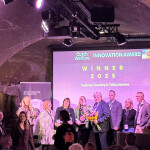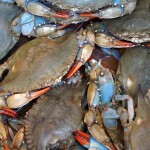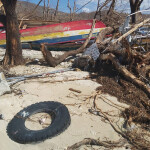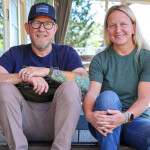Filters
Product Categories
Is it 2021 yet?! Corporate Due Diligence on Seafood Legality and Human Rights - Where We Are and What’s to Come

Speaker(s)/Moderator(s):
Lisa Weddig, Director of Regulatory Affairs, National Fisheries Institute
Moderator: Sean Murphy, Editor, SeafoodSource.com

From Claw to Tail: Innovation in Maine Lobster Processing
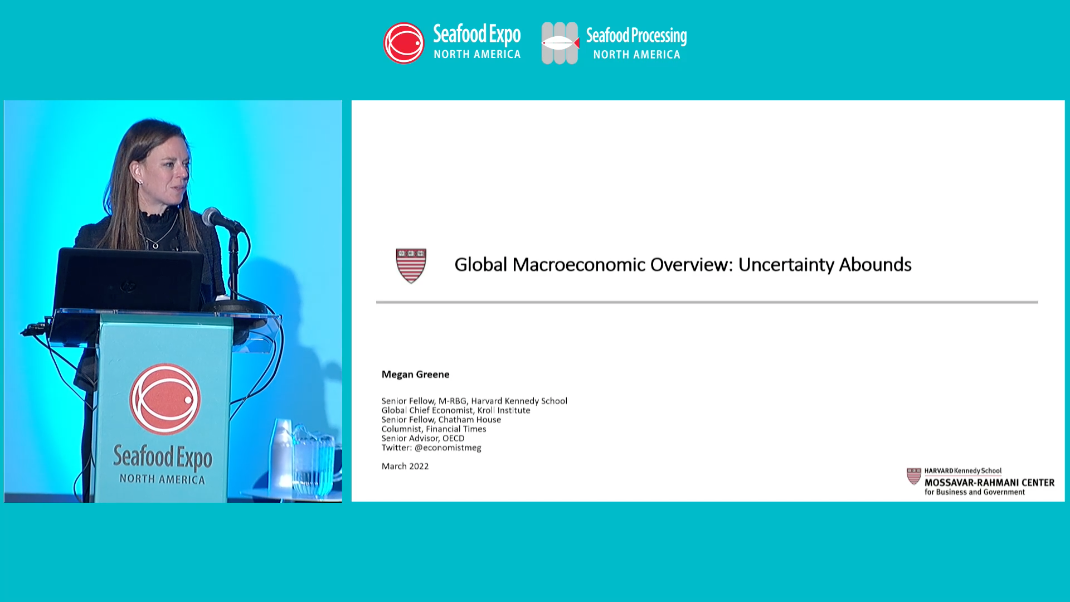
Speaker: Megan Greene, Global Economist, Financial Times Columnist & Senior Fellow, Harvard Kennedy School
Economic forecasting is a tricky business; they say the key to success is to forecast often. Megan Greene is unafraid to have out of consensus views and has a fantastic forecasting track record. She examines high frequency economic data, structural trends, global flows, political factors and policy developments to determine the state of the global recovery and to highlight risks and opportunities for businesses and markets. In this keynote presentation, Greene will examine these factors to offer insight on where the global recovery is heading, including an outlook for international supply chain challenges, inflation, and climate change.

Fresh from Farm to Market: Challenges and Solutions for an Unbroken Cold Chain

Become a Premium member for unrestricted and unlimited access to all SeafoodSource content.
PLUS, as a part of this exclusive bundle, receive the Top 25 American Seafood Suppliers, Volume 4 eBook for FREE!
Memberships will automatically renew on an annual basis until cancelled. By becoming a member, you will also be subscribed to SeafoodSource News, SeafoodSource's digital newsletter. You may unsubscribe at any time.
This Product Includes:
-
$450.00
Premium Membership
Access all SeafoodSource content -- unrestricted.
Memberships will automatically renew on an annual basis until cancelled. By becoming a member, you will also be subscribed to SeafoodSource News, SeafoodSource's digital newsletter. You may unsubscribe at any time.
-
$0.00
Top 25 North American Seafood Suppliers, Volume 4
SeafoodSource is proud to continue its long legacy of producing its Top 25 North American Seafood Suppliers with Volume 4, its 2018 edition.
Check out this year’s list to see who moved up, who dropped down, and who held steady. And this year’s version includes more in-depth information on all the news affecting the continent’s biggest seafood players, as well as exclusive interviews with C-level executives for three Top 25 firms.
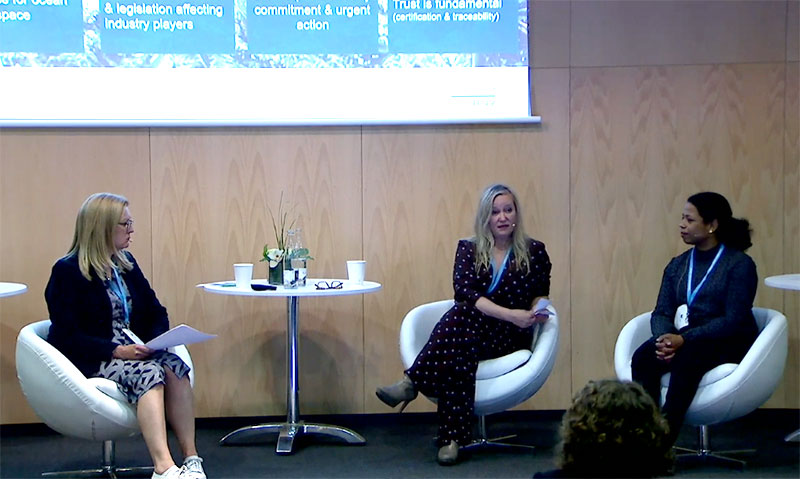
Join us for an inspiring session to explore our marine future and how to ensure the production needed to feed the planet. DNV’ forecasts a doubling of marine aquaculture to meet the demand by 2050, which underlines the need for innovations to overcome farming challenges. The emerging new green deal is putting additional requirements on the industry to ensure trusted traceability along its entire value chain.
Can our oceans sustain the needed growth and what are the key challenges and limitations the industry faces in meeting the growing food demand? And how can certification and traceability help companies respond?
Nafiha Usman and Lisa de Jager will share insight on the latest trends, predictions and responses needed for the industry to grow and provide transparency toward customers and consumers worldwide.
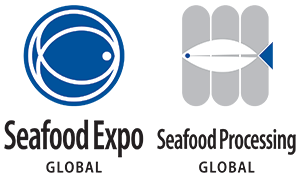
Access all available Seafood Expo Global 2025 conference session videos.

Access all SeafoodSource content -- unrestricted.
Memberships will automatically renew on an annual basis until cancelled. By becoming a member, you will also be subscribed to SeafoodSource News, SeafoodSource's digital newsletter. You may unsubscribe at any time.

